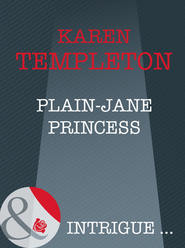По всем вопросам обращайтесь на: info@litportal.ru
(©) 2003-2025.
✖
Hanging by a Thread
Автор
Год написания книги
2018
Настройки чтения
Размер шрифта
Высота строк
Поля
The windows in both of our houses are lit up; a muted salsa beat throbs from the Gomez apartment, from what had been our living room when I still lived there. My gaze shifts to the other side, where I live now with my daughter and grandfather. And out of nowhere the thought comes, What if you never leave this house? What if you end up marking every season for the rest of your life by whatever outfit Mrs. Patel’s flamingo is wearing?
My blood runs cold. Home is all well and good, but your childhood home is someplace you’re supposed to be able to come back and visit, not rot in—
“Hey, you! You forget where you live or what?”
That’s Frances. Scardinare. Luke’s mother. Figures she’d get home the same time as me. Not that I don’t love Frances, but sometimes there just isn’t room in your head for anybody else.
But I smile anyway. Between Mrs. Patel’s spotlights and these damn halogens, the street’s lit up practically like it’s daytime. “Just trying to figure out if I’ve got the energy to haul my butt up these stairs, that’s all.”
“I know what you mean.” Frances passes her own stoop, her long, thin arms weighted down with several grocery bags. Let me tell you, when I hit my late fifties? I should look half as good as Frances does. Not that I will, considering she’s a good head taller than I am and has all this incredible bone structure. And legs. Even after six kids, she’s still a size ten. Without dieting. And since she started earning her own money selling real estate a couple years ago, she dresses well. Has her hair done at Reggio’s once a month, too, this really flattering, layered style that sets off her big eyes and high cheekbones. And somehow, it stays looking good between cuts. Me, my hair already looks like it’s growing out by the time I’ve tipped the shampoo girl.
Still clutching the bags, Frances holds out one arm for a hug, her wide mouth splayed in a huge grin. My heart does a little skip: when my mother died and my grandmother didn’t seem any too hot on the idea of filling the gap in my life, Frances did, like a mother cat taking on an extra kitten. The woman scares the snot out of me, but I would not have survived my teenage years without her. Or at least, I doubt anyone else would have.
She lets go, a frigid breeze toying with her dark hair. “Did you hear? Petie and Heather are finally getting married!”
Pete’s—nobody, but nobody besides Frances can get away with calling him “Petie”—the brother after Luke, a year younger. Heather Abruzzo was three years behind me, I think, but her older sister Joanne used to hang out with Tina and me from time to time when we were teenagers. “No! When?”
“June, when else—?”
My front door pops open; with an affronted, “Geez, finally!” my daughter shoots out of the house and down the steps to the icy sidewalk, fusing to my hip. I hug her back, noticing she’s in her nightgown and Elmo slippers.
“Get back inside, you’ll catch your death!”
Through her glasses, reproachful, and slightly pitying, brown eyes roll up to meet mine. “You don’t catch colds from the cold. You catch ’em from germs.”
I do know this, actually. But it’s unnerving hearing it from someone who’s still short enough to ride the bus for free.
“Maybe so.” I scoop her up into my arms—it’s like picking up a dust bunny, she’s so light—and kiss her on her cold, freckled little nose. I want to eat her up, even as the thought that we’re stuck with each other forever still gives me pause. “But you could get frostbite,” I say, “and that would be a lot worse, ’cause then your toes’d fall off.”
That gets a considering look. I can tell she doesn’t quite believe it, but is this really a chance she wants to take?
“Go back inside, Twink,” I say, putting her down, feeling like a fraud, wondering if I’d feel less like one if she’d been planned. If I could tell her the truth about her father. If I knew the truth about her father. “I’ll be up in just a minute, I promise.”
“Swear?”
“Swear.”
She trudges back up the stairs, a tiny, shivering figure in flowery flannel, only to turn and threaten me: If I’m not inside by the time the big hand’s moved to the next number, she’s coming to get me.
After the door closes, Frances laughs. Then she says, “You’re getting home kind of late, aren’t you?”
“It’s not seven yet,” I say, but she gives me this reproving stare, her mouth all screwed up, then sighs.
“You work too hard.”
“And you don’t?”
“My kids are grown. Or nearly.” Her five oldest sons are out of the house; the youngest, Jason, is seventeen and probably wishes he was. “It doesn’t matter if I’m not there to cook their dinner.” I laugh, and she rolls her huge, almost black eyes. “Okay, so maybe I never did cook their dinner, but at least I was there. And speaking of dinner—” she shifts her bags to one hand, flexing the fingers on the other “—we’re going up to Salerno’s, you and Leo and the baby should come with us. Our treat.”
Frances and Jimmy are always like this, wanting to take us to dinner, their treat. Of course, my grandfather is just as bad, which gets to be a major headache when he and Jimmy start fighting over the bill.
“Starr’s already in her jammies.”
“So she’ll get dressed again. It’s barely seven. What’s the big deal?”
“Leo did brisket.”
“Which is always better the next day, right? So come on, you look like you could do with a night out. And if you’re there, we might even be able to enjoy our meal without looking at Jason’s sulky face all night.”
An understatement if ever there was one. My needing a night out, I mean, although I know what she means about Jason’s sulking, too. Poor kid. Adolescence has hit him harder than all his brothers combined. Not that the Scardinare testosterone surges didn’t terrorize the neighborhood for several years—there was an eight-or ten-year period when there were at least four teenagers in the house at any given time—but I guess it’s harder on Jason, being the baby and not having his older brothers around all that much. He’s like a walking David Lynch movie—very dark, very weird, with lots of incomprehensible erotic undertones. If I hadn’t baby-sat for him when he was little, he’d probably creep me out.
To further complicate things, I think he has a crush on me. He’s over here constantly when I’m not at work, following me around, his big moony eyes peering out at me through his straggly black bangs, like prisoners who’ve lost all hope. Think Nicholas Cage in Moonstruck, then multiply by ten. And like Cher, I want to smack the poor kid and yell “Snap out of it!”
But I don’t have the heart.
Then I remember, with a sickening thud, the main reason, or reasons, I can’t leave the house tonight: Tina. Whom I’m supposed to meet in a little over an hour.
“Mama!” Starr’s shrill little voice darts out from the doorway. Her hands are on her hips. “The big hand’s moved past two numbers! That’s ten minutes!”
“Another time,” I say to Frances.
She sighs and shakes her head, then turns toward her house, shouting, “Dinner, here, Sunday, Heather wants to show off her ring,” over her shoulder as she goes.
And I head up the stairs, wondering how somebody with no discernible personal life can have so many demands on her time.
An hour later, I’m by the front door, slipping my father’s coat over an outfit more appropriate to Pinky’s—Levi’s, slouch boots (with heels that could double as shishkebob skewers), a dark red vintage mohair sweater I found on eBay for ten bucks. I don’t know why I prefer older clothes to new, other than the obvious fact that I can’t afford to buy new. Nor do I know anybody who can. I mean, I read Vogue and think, chyeah, right. Not that I don’t think some of the stuff is seriously hot, but Jesus. Even if I weren’t a foot too short to wear any of it, by the time I could afford it, I’d be so old I’d look like a freak in it, anyway. I mean, two grand for a fringed skirt shorter than something I’d let my five-year-old wear? Please. And let’s not go anywhere near the six-or eight-or fifteen-hundred-dollar handbags. You’re supposed to be afraid that somebody might steal what’s in your purse, not the purse itself. Or am I missing something here?
So I wear old, cheap and/or free stuff. Mind you, having never harbored a secret desire to look like a bag lady, it’s old, good-looking cheap and/or free stuff. I do have, if I say so myself, a certain flair. For the ridiculous, perhaps, but at least nobody can accuse me of looking like everybody else.
Or around here, like anybody else. Sorry, but I don’t do big hair.
Anyway…by the time I read Starr the next chapter of Through the Looking Glass—interrupted a billion times by her pointing out words she recognized—and did two thorough monster sweeps of her room (there’s a big hairy purple one with a snotty nose and “sticky-outty” teeth who’s been a real pain in the butt lately) and tucked her in, it’s too late to eat, and my stomach is pitching five fits.
My grandfather, who’s been vacuuming the downstairs rooms, glances up from winding the cord into a precise figure eight, over and over, around the upright’s handles. It drives me nuts when I use the machine after he does. I keep telling him, it takes twice as long to do it this way, why not just loop it around the handles and be done with it? All that matters is that it’s up and out of the way, right? But he insists it’s neater the way he does it, that’s the trouble with the world these days, nobody takes the time to do anything carefully.
“You’re going out?” he says, hauling the Eureka out of the room.
“Yeah.” I cram an angora beret over my hair, yelling out, “Just to Pinky’s for a bit. Tina asked me to meet her there.”
Leo returns, plopping down into his favorite armchair and picking up the Nintendo controller. A second later, one of the Mario Brothers games blooms on the TV screen. The game system’s a hand-me-down from some Scardinare brother or other. Leo plays for hours, insisting it keeps his reflexes fine-tuned. “What’s up with her?”
“Couldn’t tell ya.”
He pauses the game to give me a more considering look, although I can’t really see his eyes through the sofa lamp’s glare off his glasses. But I can sure feel it. You have to understand, my grandfather is by no means some shriveled, sunken little old man. Still more than six feet tall, with a ramrod posture he expects everyone around him to emulate, even seated he’s an imposing figure. Age-loosened skin drapes gracefully around features too broad, too crude, to be called handsome, as though the sculptor had been in too much of a hurry to do much more than get the basics down. If he chose to be mean, he would be frightening. As it is, no mugger in his right mind would dare mess with him. Ironic considering that nobody’s a softer touch than Leo. I don’t dare take him into Manhattan—he’d be broke before he’d been off the train ten minutes, giving everything away to every panhandler he saw.
“Did you eat?”
“When I get back, I promise.” I cross the thickly-piled Oriental—in mostly blues and dark reds, to match the overstuffed Ethan Allen furniture my grandmother bought the year before she died—bending down to give him a kiss on his scratchy cheek. Heat purrs soothingly through the registers; the house smells like brisket and freshly washed clothes (there’s a basketful on the sofa, waiting for me to fold) and my grandfather’s spicy aftershave, and all I want to do is crash in my bedroom with a slab of meat large enough to feed Cleveland and watch one of my Jimmy Stewart movies. But instead I’m dragging my hungry, exhausted carcass back out into the bitter cold, because my friend needs me. Because I know Tina would do the same for me.











